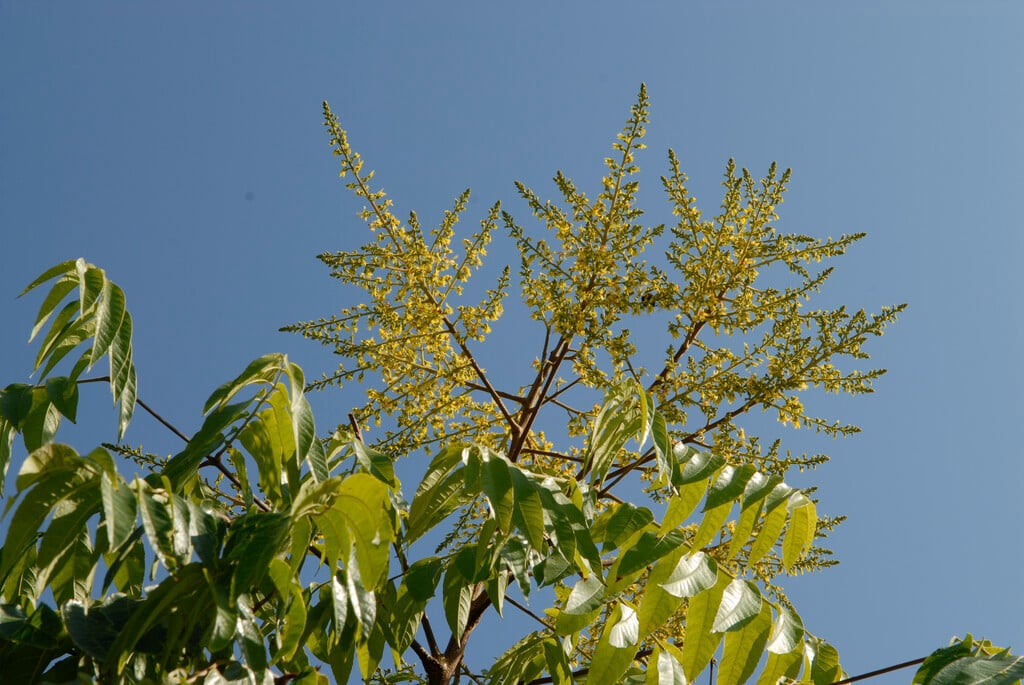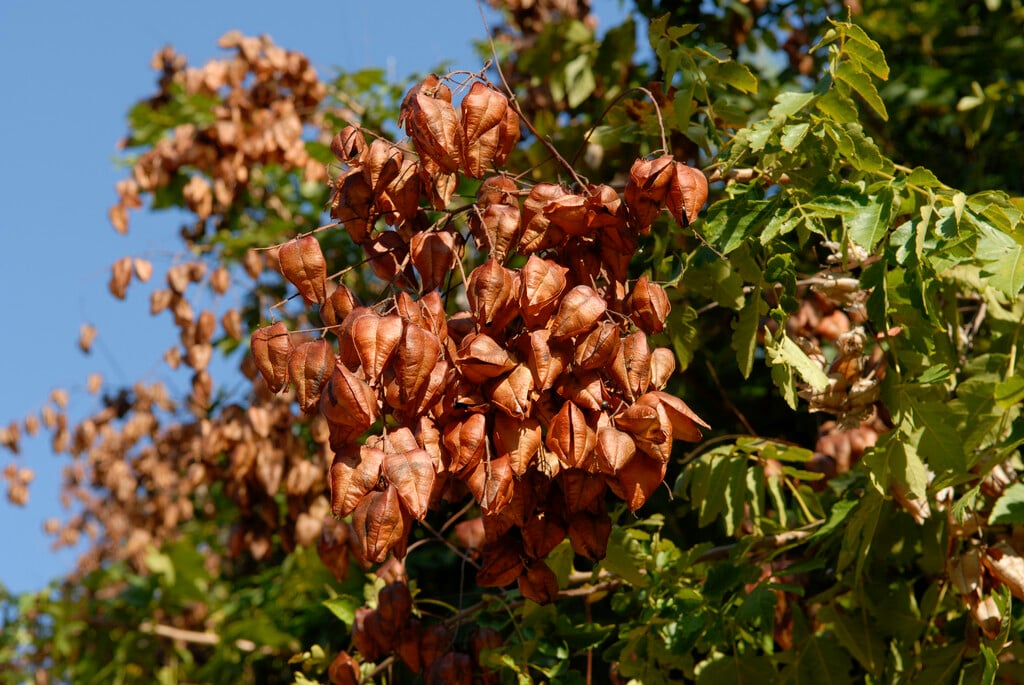Koelreuteria bipinnata
A spreading, deciduous tree to 8m tall, with large, 2-pinnate leaves composed of opposite pairs of finely toothed, oval leaflets. Red-spotted yellow flowers are borne in pyramidal clusters to 30cm long in late summer; these are followed by unusual, inflated, pink-or red-flushed fruit capsules. A fine specimen tree, flowering best where summers are hot
Size
Ultimate height
4–8 metresTime to ultimate height
20–50 yearsUltimate spread
2.5–4 metresGrowing conditions
Moisture
Well–drainedpH
Acid, Alkaline, NeutralColour & scent
| Stem | Flower | Foliage | Fruit | |
| Spring | Green | |||
|---|---|---|---|---|
| Summer | Yellow | Green | ||
| Autumn | Green | Pink Red | ||
| Winter |
Position
- Full sun
Aspect
South–facing or West–facing
Exposure
Sheltered Hardiness
H5Botanical details
- Family
- Sapindaceae
- Native to GB / Ireland
- No
- Foliage
- Deciduous
- Habit
- Spreading branched
- Genus
Koelreuteria are slender deciduous trees with attractive, pinnately-divided leaves and panicles of yellow flowers followed by bladdery fruits
- Name status
Correct
- Plant range
- S.W. China
How to grow
Cultivation
Grow in fertile, well-drained soil in full sun
Propagation
Propagate by sowing seed in containers in a cold frame in autumn. Take root cuttings or graft in late winter
Suggested planting locations and garden types
- Architectural
Pruning
See pruning group 1; prune only to remove damaged or dead wood when dormant in winter
Pests
May be susceptible to glasshouse red spider mite
Diseases
May be susceptible to honey fungus
Love gardening
Sign up to receive regular gardening tips, inspiration, offers and more
View our Privacy Policy
Get involved
The Royal Horticultural Society is the UK’s leading gardening charity. We aim to enrich everyone’s life through plants, and make the UK a greener and more beautiful place.

